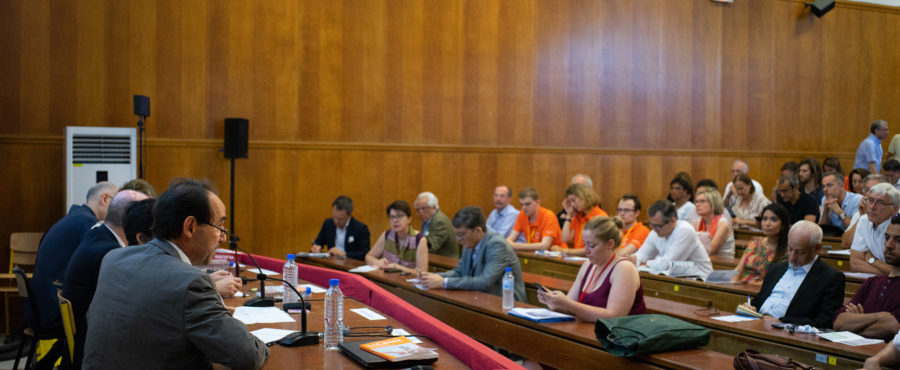6 Jul 2019
Fake News: Traditional Media Against New Networks
Session 19

The audience and revenues of the traditional media (press, television and radio) are gradually being eaten away by the major digital players with the diffusion of the new Internet networks. We now live in the world of interconnectivity-based digital media. These new media are constantly sending data to each other, recording our professions, our activities, our movements… thus transforming their function and their initial role as intermediaries.
In recent years, all media are regularly contaminated by fake news, and we live in an environment of widespread loss of confidence in the media. The disadvantage is that the lie seems to circulate faster than the truth; especially since the speed of the spread complicates the effectiveness of the response put in place.
The fight against fake news is now essential because this biased information undermines our trust in the media, to our knowledge of the world and to the trust we place more generally in the institutions that govern our common life. Ultimate paradox, the contemporaries of democracy even stand as eager defenders of freedom of expression to justify the dissemination of their content. In this context, what is the evolution of the role of journalists? What is their accountability? What is the objective behind the production of false information? Is there a correlation between the dissemination of fake news and the decline of democracy? How can we define the reliability of a medium? Has the consumer lost sight of the need to pay for reliable and substantiated information?
Contributions
Audience Perspectives on Misinformation, Disinformation and Trust
Session 19 : Fake News: Traditional Media Against New Networks
The term “fake news” was born out of a need to explain the impossible: the election of Donald Trump to the presidency. The phrase lacked salience before November 2016. Eight days after the election...
DownloadSession 19 – Fake News: Traditional Media Against New Networks?
The media in the first sense of the word are intermediaries. Their legitimacy is based on legal, ethical or moral bases, and it is on the basis of these principles that a true media is defined.
Download























































































